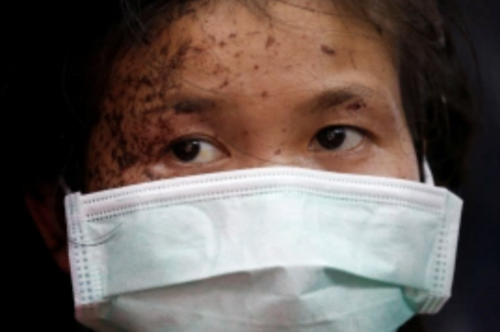Coup, COVID take toll on young people’s mental health in Myanmar

Coup, COVID take toll on young people’s mental health in Myanmar
Across Myanmar feelings of anxiety, grief, and helplessness have spread following the February 1st military coup and its brutal suppression of anti-coup protests. The Tatmadaw, Myanmar’s military, has turned to violence and repression to maintain power. A state of fear has engulfed Myanmar. One in which human rights abuses are commonplace, COVID-19 has been weaponized, and mental health has taken a backseat to basic needs such as safety and access to medical care. But as psychological trauma, depression, and suicide skyrocket, can the country afford to continue sweeping mental health under the rug? Cherry Soe Mying, a freelance counselor in Rangoon, thinks not. She notes that patient outcomes have dramatically worsened since the coup: seven out of every ten patients express suicidal ideation, whereas, prior to the coup, such cases occurred twice every three months.
However, this article’s focus on the recent coup ignores Myanmar’s long and contentious history with mental health. Decades of protracted conflict have created ideal conditions—poverty, arbitrary rule, ethnic tension—for widespread ill-mental health and intergenerational trauma. To make matters worse, Myanmar’s mental health infrastructure is woefully inadequate. Mental health policy has not been updated since the 1912 Lunacy Act. Mental Health expenditures account for 0.5% of total health expenditures, which are already staggeringly low, versus the global median of 2%.
Still, even bringing up such mental health is cause for controversy. In Myanmar, it is a taboo subject. Ill-mental health, especially depression and anxiety, are viewed as signs of weakness to be addressed privately. Widespread cultural stigmatization against the idea of mental health adds yet another barrier to addressing this issue. Collective suffering from widespread trauma in response to the recent coup has opened the door for greater discussion about mental well-being. However, for the vast majority especially those in rural and ethnic regions, traditional views serve as a barrier to recognizing this issue and seeking help. Amidst growing psychological trauma and a rapidly failing state providing the conditions for ill-mental health to flourish, what must be done?
Tangential Question: How can health services, ideas of mental health, and treatments be successfully translated across cultures? Specifically thinking about Myanmar with its diverse ethno-linguistic groups, how can quality, culturally sensitive mental health care be delivered?